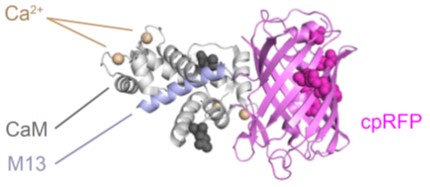-
About
- Kyoto Prize
-
Research Grants
-
Social Contributions
- Events
- News
This website uses cookies to improve the user experience. If you continue on this website, you will provide your consent to our use of cookies.
About
Research Grants
Social Contributions

Associate Professor, Graduate School of Biostudies, Kyoto University *Profile is at the time of the award.
2023Inamori Research GrantsBiology & Life sciences
Thank you very much for accepting my application for the Inamori research grant. I hope to contribute to progress in science by developing excellent sensors.
We developed a new red fluorescent calcium sensor, RCaMP3, suitable for in vivo imaging. To improve its performance for in vivo two-photon imaging, we optimized its fluorescence properties and expression level, resulting in increased brightness and sensitivity. As a result, we successfully performed in vivo mesoscale imaging with single-cell resolution, which had been difficult to achieve with conventional probes.
Yokoyama T, Manita S et al. (2024) A multicolor suite for deciphering population coding of calcium and cAMP in vivo. Nature Methods 21, 897-907 doi: 10.1038/s41592-024-02222-9
Biology & Life sciences

